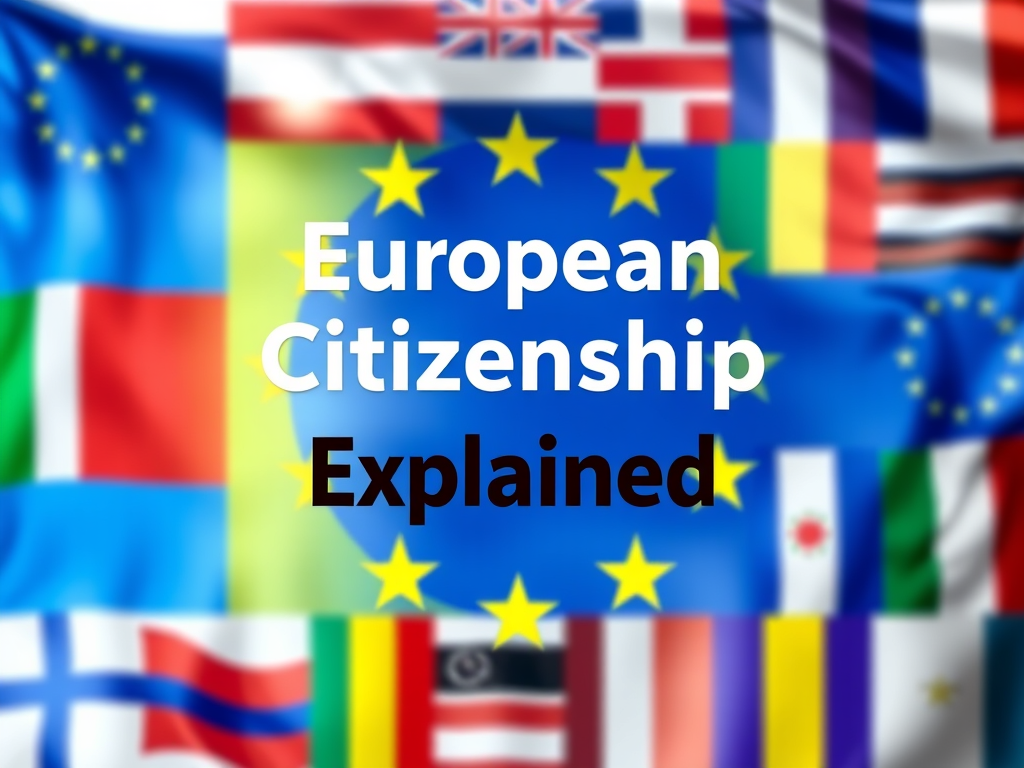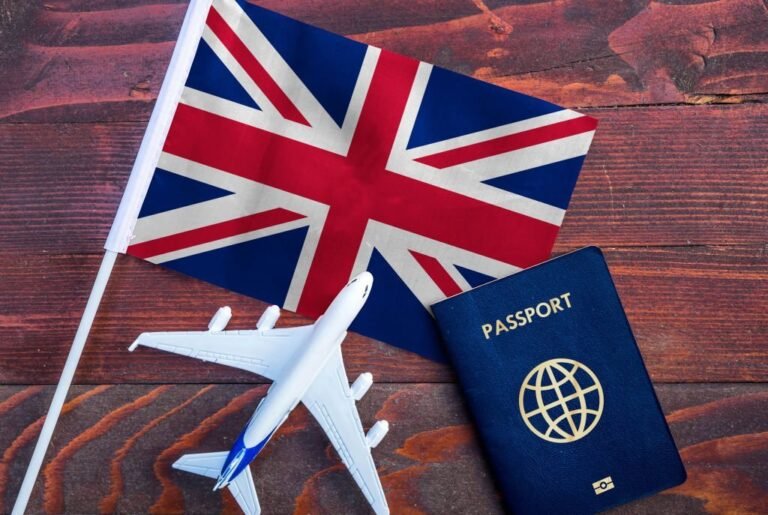European Citizenship Explained: Understanding the EU, EEA, and EFTA – What It Means for You
Navigating European citizenship can feel like decoding an alphabet soup—EU, EEA, EFTA. What do they mean, who do they include, and how do they affect your rights? Whether you’re planning to live, study, work, or simply travel in Europe, understanding these three distinct but interconnected agreements is key.
In this comprehensive guide, we’ll break it all down in simple terms, making sense of European citizenship once and for all.
Key Takeaways at a Glance
- EU (European Union): A political and economic alliance of 27 European countries.
- EEA (European Economic Area): Includes EU + Iceland, Liechtenstein, and Norway.
- EFTA (European Free Trade Association): Iceland, Liechtenstein, Norway, and Switzerland focused on trade.
- Freedom of movement: Common across EU/EEA countries; partially applies to EFTA members like Switzerland.
What is the European Union (EU)?
The European Union (EU) is a unique economic and political union of 27 countries, designed to foster economic cooperation and prevent conflict in Europe. It functions as a single market, allowing the free flow of goods, services, capital, and people.
Current EU Member States:
Austria, Belgium, Bulgaria, Croatia, Cyprus, the Czech Republic, Denmark, Estonia, Finland, France, Germany, Greece, Hungary, Ireland, Italy, Latvia, Lithuania, Luxembourg, Malta, Netherlands, Poland, Portugal, Romania, Slovakia, Slovenia, Spain, and Sweden.
Rights of EU Citizens Include:
- Living and working in any EU country without a visa or work permit
- Voting in the EU and local elections
- Access to healthcare and social services across member states
- Consular protection in non-EU countries
Helpful Resource: European Union Official Website
What is the European Economic Area (EEA)?
The EEA includes all EU countries plus Iceland, Liechtenstein, and Norway. It extends the EU’s single market to these non-EU members, offering similar rights and freedoms.
EEA Countries: All EU members + Iceland, Liechtenstein, and Norway.
Benefits for EEA Citizens:
- Live, work, and study freely across EEA countries
- Equal treatment in employment, education, and healthcare
- No work permits required within the zone
EEA citizens enjoy nearly identical rights to EU citizens when it comes to mobility and economic opportunities.
What is the European Free Trade Association (EFTA)?
EFTA was founded in 1960 by countries wishing to participate in free trade without joining the EU. Today, it includes Iceland, Liechtenstein, Norway, and Switzerland.
Unlike the EU, EFTA is not a political union—it’s purely a free trade organisation.
- Iceland, Liechtenstein, Norway: Also part of the EEA
- Switzerland has a unique arrangement with the EU via bilateral agreements
Quick Comparison Table
| Feature | EU | EEA | EFTA |
| Membership | 27 Countries | EU + 3 EFTA States | Iceland, Liechtenstein, Norway, Switzerland |
| Focus | Political + Economic Union | Economic Integration | Trade Only |
| Freedom of Movement | Yes | Yes | Limited (Switzerland varies) |
Freedom of Movement: Who Can Go Where?
One of the greatest perks of EU and EEA citizenship is freedom of movement. Citizens can:
- Live in another country without lengthy visa processes
- Work without a work permit
- Access healthcare and public education systems
Swiss citizens, as part of EFTA, enjoy partial access under bilateral agreements but may face more restrictions.
Useful Resource: EU Immigration and Free Movement
Planning to Move or Work Abroad?
If you’re planning to work or drive in the UK, understanding your citizenship status is vital. Depending on whether you hold an EU, EEA, or EFTA passport, different rules may apply.
Check out our guide on International Drivers in the UK: Convert Your Licence and Master Local Driving Challenges for crucial tips on legal driving requirements.
And if you’re applying for a UK visa, be sure to read about the UK Government Increases Financial Requirements for 2025 Visa Applicants to prepare for the new changes.
Studying in Europe as an EU/EEA/EFTA Citizen
Want to study in Germany, France, or Spain? You’re in luck!
As an EU or EEA citizen:
- You can apply to universities under the same conditions as locals
- You may be eligible for tuition-free education in many countries
- You often qualify for student loans or grants
Want even more options? Check out our scholarship guides:
- TeachNZ Scholarship and Financial Aid: A Complete Guide to Application, Eligibility, and Support
- University of British Columbia Scholarships for International Students: A Gateway to Global Education
- The Quebec Perspective Scholarship Program and How to Apply
Access to Healthcare
With a European Health Insurance Card (EHIC), EU and EEA citizens can receive medical treatment in member countries on the same basis as locals. This is especially useful for students, digital nomads, or retirees living abroad.
Learn more about EHICs at the Official EHIC Portal.
Common Misconceptions
- “Europe = EU.” Wrong. Europe is a continent. Not all European countries are in the EU.
- “All Europeans have the same rights.” Not true. EU and EEA citizens enjoy more mobility than those from EFTA-only or non-aligned countries.
- “EFTA means you’re automatically part of the EU system.” Not quite—EFTA members maintain sovereignty and follow separate paths.
Final Thoughts
Understanding the differences between the EU, EEA, and EFTA is essential if you’re living, working, or studying across Europe. Each agreement offers unique advantages, and knowing where your rights stand can help you make the most of your European experience.
From visa applications to healthcare access, and job opportunities to academic support, being informed gives you an edge. Bookmark this guide, explore more from our linked resources, and stay ahead of legal and policy changes.
Frequently Asked Questions (FAQs)
1. What is the difference between the EU, EEA, and EFTA?
The EU is a political and economic union of 27 European countries. The EEA includes the EU plus Iceland, Liechtenstein, and Norway, allowing participation in the single market. EFTA is a free trade organization made up of Iceland, Liechtenstein, Norway, and Switzerland.
2. Can EEA or EFTA citizens work in EU countries without a visa?
Yes. EEA citizens can live and work in EU countries without a visa. EFTA citizens—except Swiss nationals—have similar rights if they are also part of the EEA. Swiss nationals operate under special bilateral agreements with the EU.
3. Do EU and EEA citizens get free healthcare in other member states?
Yes. Through the European Health Insurance Card (EHIC), EU and EEA citizens can access state healthcare in other member countries on the same terms as locals.
4. Can I study in an EU country as an EEA or EFTA citizen?
Absolutely. EEA and most EFTA citizens can study under the same conditions as EU nationals, including access to low or no tuition fees and student grants, depending on the country.
5. Is Switzerland part of the EU or EEA?
No. Switzerland is part of EFTA but not the EU or EEA. It has bilateral agreements with the EU that grant similar rights for trade and limited freedom of movement.






